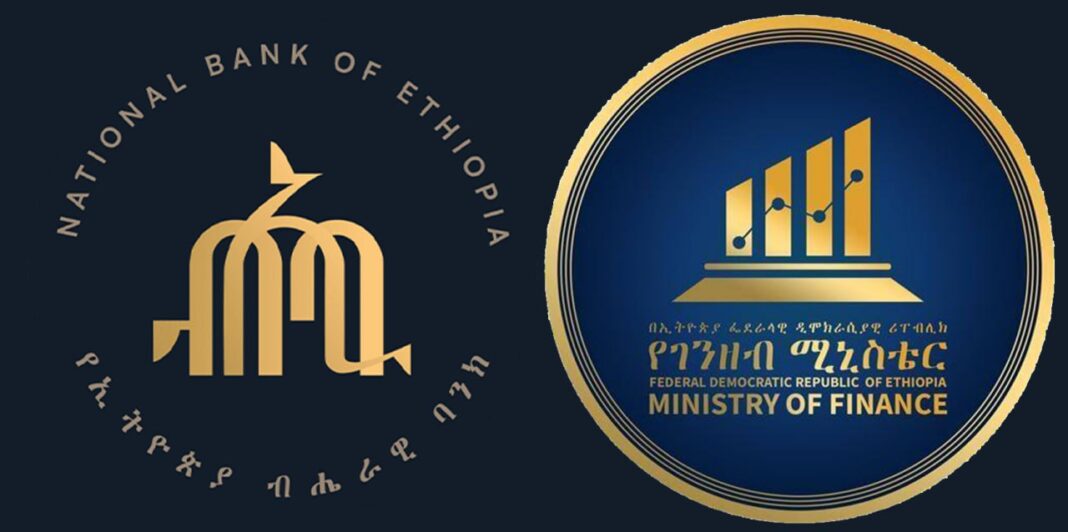The government aims to enhance financing options that attract private sector participation beyond traditional banking institutions, despite its commitment to avoid using direct advances (DA) to address the budget deficit.
In an effort to access the DA, a legacy public debt contributing significantly to inflation, the government has opted to reduce its activities. This is part of the ongoing economic reform process initiated over the past several years.
For instance, during the previous fiscal year, the Ministry of Finance (MoF) and the National Bank of Ethiopia (NBE) agreed that the DA facility should be employed only as a last resort when the market fails to produce sufficient Treasury bonds and Treasury bills (Tbills).
Despite this agreement, the government obtained 112 billion birr from the NBE via DA in the fiscal year ending June 30, 2024, increasing its total debt to 242 billion birr.
Again, the government reiterated that it would not access the DA for the current year, which aims for significant macroeconomic transformation, including the establishment of market-based foreign exchange markets.
Instead, the government plans to focus on boosting alternative local market-based funding sources, encouraging participation from the private sector, individuals, and businesses.
According to the current strategy, Tbills will serve as the primary market-oriented avenue accessible to all participants, with particular emphasis on financial institutions and pension agencies.
Since late 2022, all banks, except the Development Bank of Ethiopia, are required to allocate 20% of their loan portfolio to treasury bonds, a stipulation that differs from the voluntary nature of Tbills.
As stated in the government’s commitment document to the International Monetary Fund (IMF), commercial banks will no longer be obligated to purchase 5-year treasury bonds by the end of June 2025. “In 2024/25, we will require banks to purchase 50 billion birr worth of 5-year T-bonds at a minimum interest rate of 9 percent (the minimum savings rate plus 2 percent),” the government announced.
The government committed to terminating the monetary financing of public deficits and intends to comprehensively address the capital situation of the NBE, including the total government debt, in line with its macroeconomic reform agenda and promises to international partners.
The goal is to rely solely on market-based methods to expand the market for longer-dated government securities.
According to the proposal, Tbills, which have attracted newer and more appealing participants, will become a principal source of local funding.
The government reintroduced Tbills with a market-based auction system during the rollout of the first Home Grown Economic Reform (HGER I) in 2019. However, this initiative primarily attracted the government-run Private Organizations Employees’ Social Security Administration and the Public Servants Social Security Agency.
The government has recently increased the rate at which it accepts offers to the policy rate (NBR) to 15%, aiming to raise more funds from T-bills and attract private banks. Previously, this rate ranged between 10% and 11%.
To generate the necessary funds to close the budget deficit, the Ministry of Finance (MoF) is also looking to engage private investors and businesses.
The MoF is preparing to launch an attractive T-bill program designed to appeal to new investors, in contrast to established ones.
Recently, the MoF communicated to the IMF, stating, “We will rely on market-based domestic financing for all other purposes, particularly through developing the T-bill market.”
The statement also noted, “We are implementing measures to manage the legacy of domestic public debt, balancing fiscal sustainability with the gradual elimination of financial repression.” This approach aims to ensure that the cost of government funding is determined by the market, reflecting the opportunity cost of using investable funds. Additionally, it seeks to support the growth of the bond market and improve credit allocation to the private sector.
A shortfall of 325.6 billion birr was reported from the 971 billion birr budget approved for 2024/25 in June, which will be covered by local debt.
However, in the most recent supplementary budget and funding restructuring proclamation, foreign sources have replaced the anticipated 119 billion birr from the deficit.







